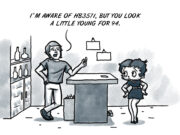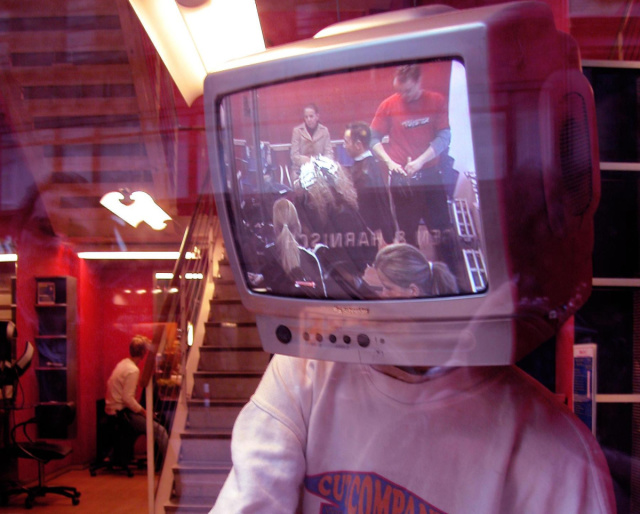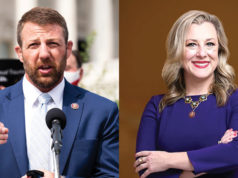(Editor’s Note: Vital Conversations is a running series of commentaries from various faith leaders. The series is sponsored by Phillips Theological Seminary, though contributions come from theologians who are unassociated with the seminary.)
Writing on the rise of Donald Trump as a possible (likely) presidential candidate is taking up more ink and screen space as he continues to dominate the Republican field. Many political prognosticators kept predicting Trump’s demise.
But there were those who were far ahead of the pundits in predicting a possible Trump run, including the Simpson’s in the 2000 episode Bart to the Future, and a New York University professor who in 1985 wrote about an increasingly distracted, media-driven culture that could lead to a candidate that looks a lot like Donald J. Trump.
Neil Postman argued in his book, Amusing Ourselves to Death: Public Discourse in the Age of Show Business, that the distraction of a 24/7 intellectual diet of constant entertainment has rendered the public less and less capable of paying attention. He dedicates an entire chapter, Reach Out and Elect Someone, to the problems our showbusiness age brings to the electoral process.
Postman’s warnings about entertainment taking over the political process are just one part of his argument with modern media. While he focuses his work on the dominant medium of the time — broadcast television — his ideas easily extend to our Internet age.
That a candidate could lead the field of the Republican Party without presenting comprehensive policy plans, running instead on a “platform” based on fear and the need for an authoritarian strongman, demonstrates just how far this reality-TV show campaign has devolved. This presidential primary season is an entertainment spectacle, full of distracting moments that keep voters focused on the inconsequential. Whenever Trump is pushed to provide policy details or countered on a claim, he reacts like the reality-TV star he is, not like a future head of state.
Trump pushes the simple parable of a declining nation that can only be rescued by a lone champion, a strong person who will stand against thoughtfulness and kindness if it is in his way. He understands the power that comes from activating the reptilian part of the human brain. Trump knows that many people will gladly give him whatever power he wants when he touches their visceral concern that they are losing control of the nation.
Demography is the Trump voter’s enemy as non-white populations grow into majorities and nearly the same number of people claim to have no religious affiliation as those who practice evangelical protestantism. This is why Trump wins so many of these conservative Christian votes, even though he has shown little in the way of religious dedication in his personal life.
And while the changing demographics of the U.S. affirm the fears of Trump followers who feel their nation is at grave risk, this fear arises from a lack of understanding and context for these changes. As Postman writes, “We are being rendered unfit to remember.” What Trump targets is not some grand historical past greatness the U.S. once enjoyed but rather a “nostalgia” of greatness. Postman writes:
If remembering is to be something more than nostalgia, it requires a contextual basis — a theory, a vision, a metaphor — something within which facts can be organized and patterns discerned.
This media age of news and information reduces context to the point where it disappears. The instant action and reaction cycle of the news/entertainment complex hampers our ability to examine what is going on, because we’re all too busy reacting to a reaction. Regardless of what happens to Donald J. Trump, the base problem of our amusement-driven world is unlikely to change. It’s clearer now than ever that George Orwell was wrong and Aldous Huxley was right (for Western democracies, as Postman notes).
The Big Brother world of Orwell’s 1984, where truth is hidden from the people, withers in comparison to the context and history-killing community in Huxley’s Brave New World, where truth is overwhelmed by a tide of distraction. As Postman put it:
Seemingly benign technologies devoted to providing the populace with a politics of image, instancy and therapy may disappear history just as effectively, perhaps more permanently, and without objection.
The history of oppression by authoritarian leaders, swept to power by a population hungry to protect its nostalgic past, is well-noted in world history. It’s difficult to share power with those who have been powerless for so long. Trump promises to concentrate that power into his hands so it will not be shared. If that happens, the amusements will likely increase in hopes that we won’t notice the radical shift in our world.

Previous installments of Vital Conversations
‘Laments help us as we share our sorrow’
‘Broken, hate-filled people’ ruin Jesus’ ‘Good News’
Banning refugees would deny Christianity’s vulnerability
In Trump, Republican Party gets the savior it has sought
With Jesus born, Mary would have been uninsured in OK
Faith community dialogue: Criminal justice reform
Save persecution label for when liberty is endangered
Science, religion agree: ‘We are part of nature’
Ten Commandments: Reactions spur moral discussion
Vital Conversations: Christianity needs a Jon Stewart
Imam: A Muslim is your brother from another mother
Pope’s visit should ‘enrich our impoverished discourse’






















